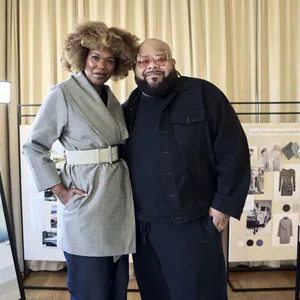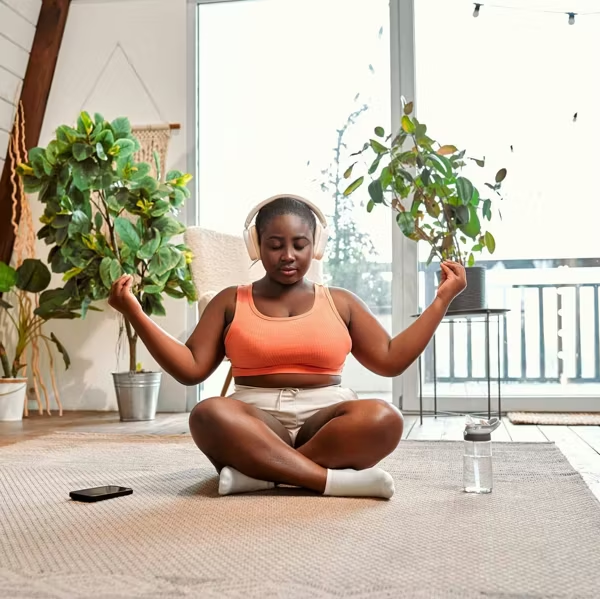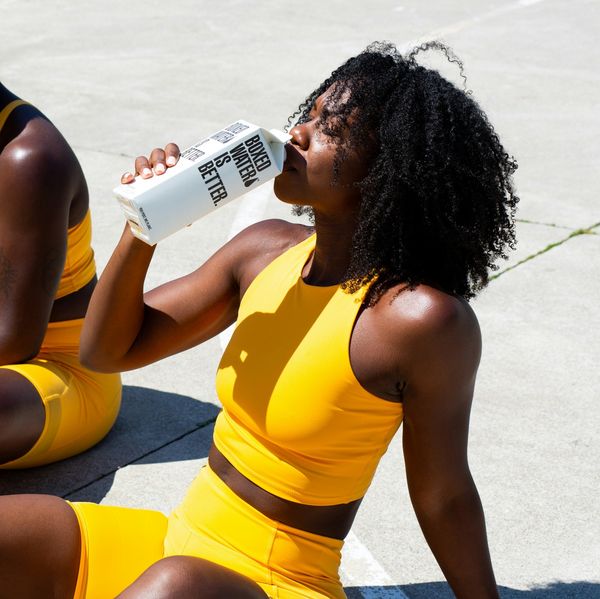Onions. If anything (at least to me) smells like onions (besides onions), it’s smelly armpits. And did you know that whenever that goes down, the odor isn’t caused by the sweat itself? Nope, it’s actually the bacteria on your skin, mixing in with the sweat, that is the source of all of the drama.
And that’s why antiperspirants are so popular; they help to reduce sweating. And deodorants? (Because yes, they are different.) They help to decrease the smell without really stopping the sweat. However, the potential issue with both of these is that they sometimes contain chemicals that can mess with your hormones.
And while we’re here, if you’ve heard that the chemical aluminum (which is found in antiperspirants only; folks just tend to use deodorant and antiperspirant interchangeably, which is actually what I’m about to do, moving forward) can lead to breast cancer, here’s the thing. Although many researchers have said that there isn’t enough evidence to back that up, elevated amounts of it can lead to weakened bones or even an Alzheimer’s disease diagnosis — so, just to be on the safe side, if you want to go with a commercialized brand of antiperspirant or deodorant, an aluminum-free one would probably be your best bet.
10 Natural Deodorant Alternatives That Actually Work
And what if you want to forego the stores altogether and try something that is as natural as possible? Well, if your main focus is to reduce the smell, make sure that your armpits are clean, that there is as little hair there as possible (hair traps sweat and odor), and that you wear clothing that allows your pits to breathe (oh, and watch your stress levels too).
Beyond that, you can try the following 10 deodorant alternatives that are pretty effective — especially when it comes to eliminating that “onion” stank that none of us want to deal with…ever.
1. Witch Hazel
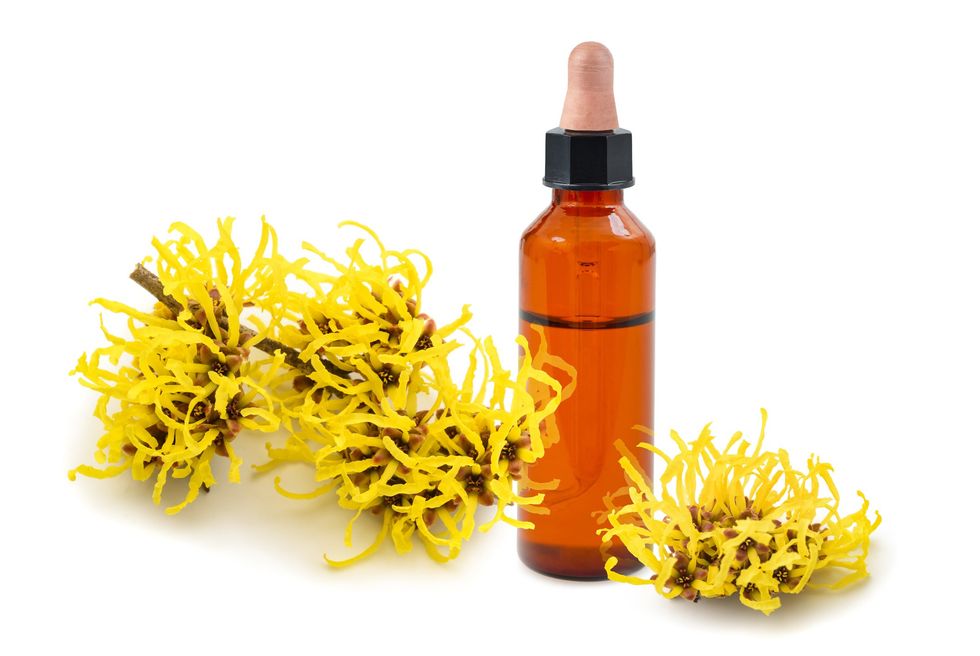
Getty Images
Something that I will forever-and-a-day sing the praises of is witch hazel — more than anything because, for all of the benefits that it provides, it continues to be pretty inexpensive. Skin-wise, you can use witch hazel as a skin toner; a way to reduce the inflammation of your pimples; as something that helps to reduce the irritation that is associated with bug bites; an all-natural remedy that helps to protect your skin from outdoor pollution; something that works to soothe an irritated scalp or symptoms that are directly associated with psoriasis and eczema — the list goes on and on.
The reason why it works as an effective deodorant alternative is due to the fact that witch hazel contains astringent properties that can help to reduce the size of the pores that you sweat out of as well as decrease the bacteria that causes the odor that’s within your pits. If you’d like to create a witch hazel spray for your underarms, there’s a cool recipe here.
2. Coconut Oil and Baking Soda
It’s kind of wild, how many acids are in coconut oil. For starters, there’s caprylic acid (which contains antibacterial and antifungal properties); lauric acid (which has anti-inflammatory properties); oleic acid (which deeply moisturizes); linoleic acid (which strengthens your skin’s barrier), and capric acid (which works to smooth and soften your skin). All of these acids work together to soothe dry skin, unclog pores, and reduce skin inflammation.
As far as baking soda goes, the properties in it helps to exfoliate your skin; it works as a spot treatment for pimples; it can soothe your skin after you finish shaving it; it can help to cleanse and soften your nail cuticles, and if you’ve got psoriasis and you soak in a baking soda bath, it can bring relief to those symptoms as well.
This combo is a winner as far as deodorant alternatives go. Coconut oil can kill the bacteria that cause the odor while baking soda can help to absorb the sweat; plus, its antimicrobial properties can reduce some of the odor too.
3. Apple Cider Vinegar
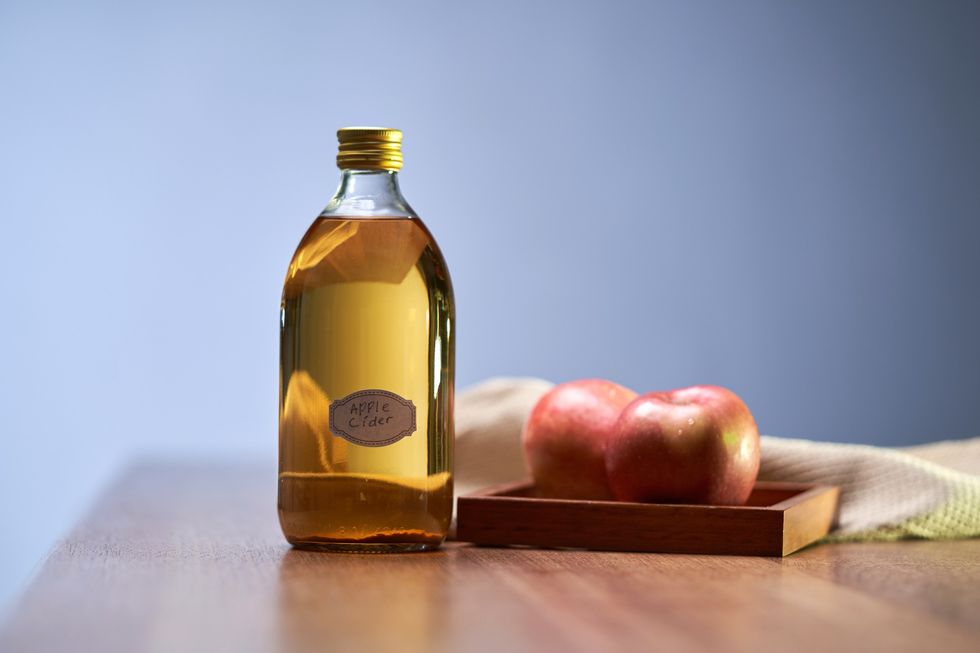
Getty Images
There are all kinds of things that apple cider vinegar is able to do; however, when it comes to your skin, specifically, you should consider using it because it’s able to deeply clean and exfoliate your skin; tone and hydrate your skin; kill bacteria that leads to pimples; lightens the appearance of hyperpigmentation that comes from breakouts, and it can help to balance the pH balance of your skin.
Since the vinegar that’s in it contains pathogens that kill bacteria, that’s why apple cider vinegar could help to get rid of the body odor that’s underneath your arms. For the record, it’s also a potent ingredient if you want to detox your pits which is a wise thing to do from time to time (check out “When's The Last Time You Detoxed Your Armpits?”).
4. Dusting Powder
Several years ago, Allure published an article entitled, “Switching to Natural Powder Deodorant Stopped My Underarm Rashes.” It wasn’t until then that I knew that dusting powders even existed. These can be a smart deodorant alternative, simply because they are designed to reduce moisture and odor without the use of harsh chemicals or the possibility of being damaging to your skin. A brand that gets pretty rave reviews is Herb & Root. You can look more into why by going here.
5. Essential Oil Blend
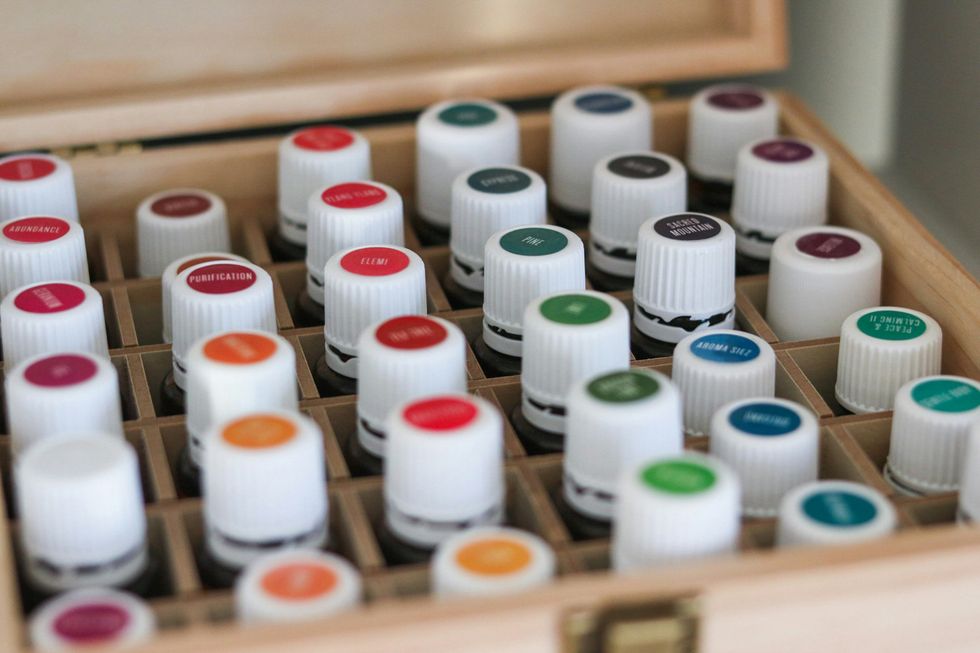
Unsplash
Some of y’all already know that every chance I get, I’m going to shout out essential oils (check out “You'd Be Amazed How Much These 10 Essential Oils Can Give You Some Blissful Sleep,” “10 Essential Oils That Are Great For Feminine Hygiene (And A Few Other Things),” “10 Essential Oil Beauty Hacks I Bet You Didn't Know About,” and “6 Different Places To Apply Essential Oils. And Why.”).
They are bomb when it comes to this topic because the powerful antibacterial and antifungal qualities in many of the oils will not only help to fight the bacteria that cause underarm odor, but the scent of many of them is divine as well. Some to apply (along with a carrier oil like grapeseed or almond, so that the strength of the oil doesn’t irritate your skin) that will get the job done include lavender, clove, lemongrass, cinnamon, orange, patchouli, and peppermint.
6. Cornstarch
As someone who has a fungal sensitivity and has also been blessed with some H-cups (I mean…), I’ve had a few pretty nasty yeast infections underneath my breasts before (check out “What To Do For Yeast Infections (On Other Parts Of Your Body)”) — and something that has helped to heal them is cornstarch from the aspect of absorbing the moisture that yeast likes to thrive in. Cornstarch can benefit you in other beauty-related ways including being able to use it as a dry shampoo, a gentle exfoliant, or as a way to instantly turn your lipstick from glossy to matte.
And yes, cornstarch makes the deodorant alternative list because of how well it is able to absorb moisture. Plus, if you add coconut oil and an essential oil to the mix — you’ve got a DIY deodorant that should last you for hours on end.
7. Aloe Vera
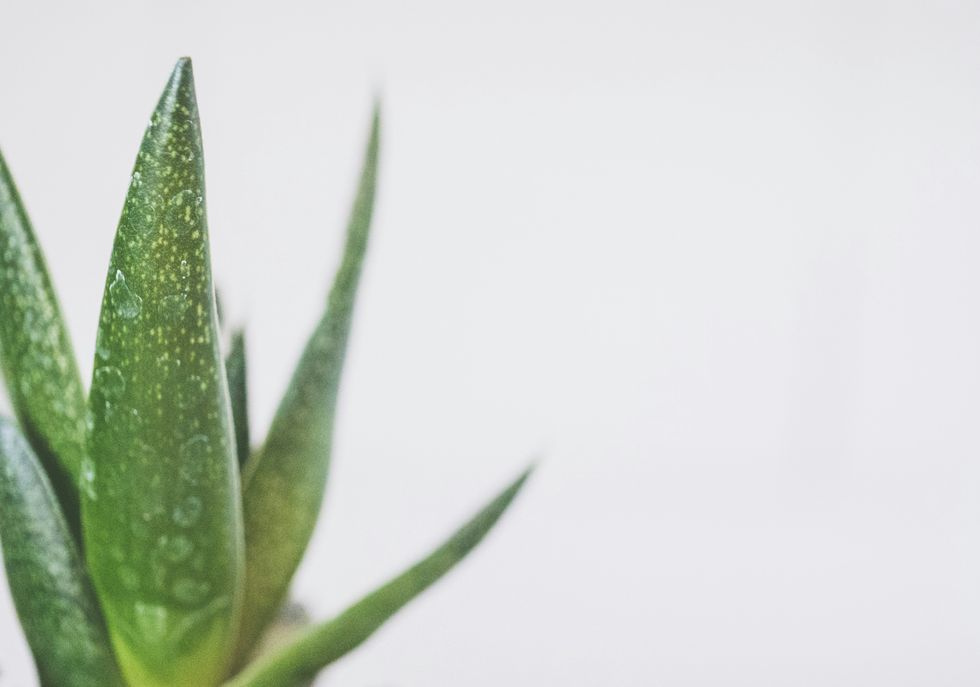
Unsplash
Aloe vera is a plant that benefits your skin in a ton of different ways. It’s high in hydration. It helps to increase collagen production in your skin. It helps to reduce breakouts. It soothes the itchiness and dryness of your scalp. It decreases skin inflammation (like the kind that is associated with eczema and psoriasis). It speeds up the healing process of minor skin issues. It even helps to fade stretch marks.
If you’ve got a plant in your house (or some 100 percent pure Aloe vera gel lying around), cut off a piece and rub it directly underneath your pits. The antibacterial and antiseptic properties in the plant will prevent odor while keeping your pits feeling soft and smooth in the process.
8. Glycolic Acid
Glycolic acid is a type of alpha-hydroxy acid that, skin-wise, is able to do everything from minimize the appearance of your pores, exfoliate dead skin cells, and unclog pores to even out skin tone, protect skin from damaging UV rays and reduce the appearance of fine lines and wrinkles. I’ve used it in some of my chemical peels before (check out “I've Been Doing At-Home Chemical Peels. Here Are The Pros And Cons.”) and yes, it is the truth.
As far as applying it as a deodorant alternative, glycolic acid gets a bit of mixed reviews. While some skin specialists say that its antibacterial properties aren’t strong enough to fight the kind of body odor that transpires underneath your underarms (here), others say that so long as your skin isn’t super sensitive, glycolic acid has the ability to decrease odor — well, if you don’t mix it with other products (here).
That’s because, doing so, could alter the pH balance of the skin that’s under your arms in a way that actually amplifies your body odor. Otherwise, glycolic acid alone can actually lower your pH balance in a way that makes odor less of an issue. Hey, it’s worth a shot.
9. Rubbing Alcohol
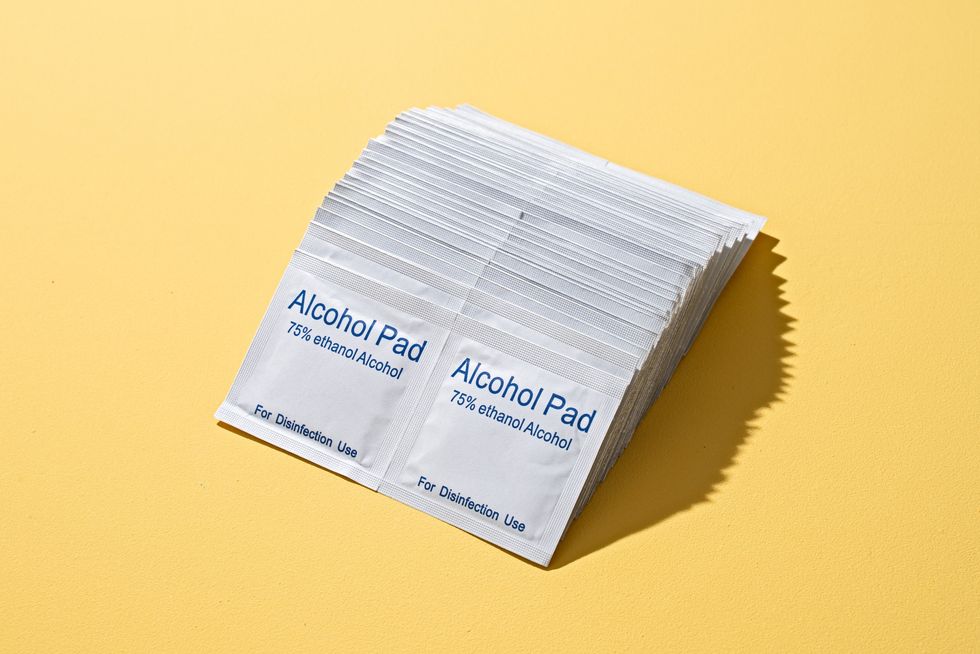
Getty Images
Because alcohol is so drying, it’s not really something that you should apply to your skin on a consistent basis; that’s probably why it’s used more as a cleaner and disinfectant for tasks around the house than anything else. That’s not to say that it can’t help you out if you happen to be in a bind as far as your underarms are concerned, though.
Since it is such a potent astringent, rubbing alcohol is something else that can (temporarily) make your pores smaller and reduce the bacteria in your pits. Just make sure that you don’t use it right after shaving unless you want your skin to STING sting.
10. All-Natural Deodorant
And then there’s all-natural deodorant which is simply a deodorant that doesn’t contain harsh chemicals like talc, aluminum, parabens, phthalates, and fragrance. And although, again, the American Cancer Society still maintains that there is not enough scientific evidence to link breast cancer with antiperspirants or deodorants, if you want to be on the safer side, chemical-free deodorants are the way to go.
If you’d like to see some options that you are able to choose from, check out Allure’s “15 Best Natural Deodorants That Actually Work,” Byrdie’s “The 10 Best Natural Deodorants I Tested That Truly Keep Odor in Check” and Independent’s “18 best natural deodorants that are kinder to your skin.”
BONUS: Hand Sanitizer
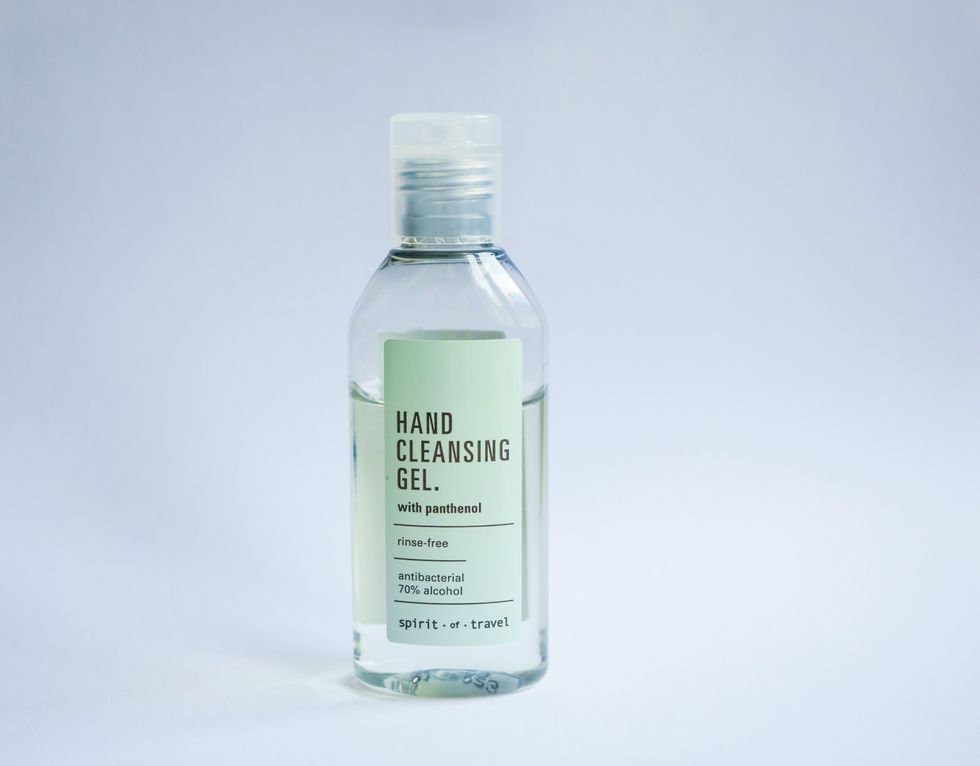
Getty Images
If you’re really in a jam, believe it or not, something that can help you out is hand sanitizer. Since it’s loaded with alcohol and is literally designed to kill bacteria on contact, that’s why you can trust it to work if you happened to run out of the house without putting deodorant on — or you forget to apply one of these deodorant alternatives.
___
Onions. When it comes to smelling like them, now you know what you can do that is safe, holistically beneficial (as far as your skin is concerned), and will get you through those rough days. I mean, at the very least, keep some sanitizer in your purse.
Life comes at you fast. Always be prepared. Pits ‘n all, chile. Pits. And. All.
Let’s make things inbox official! Sign up for the xoNecole newsletter for love, wellness, career, and exclusive content delivered straight to your inbox.
Featured image by Delmaine Donson/Getty Images


